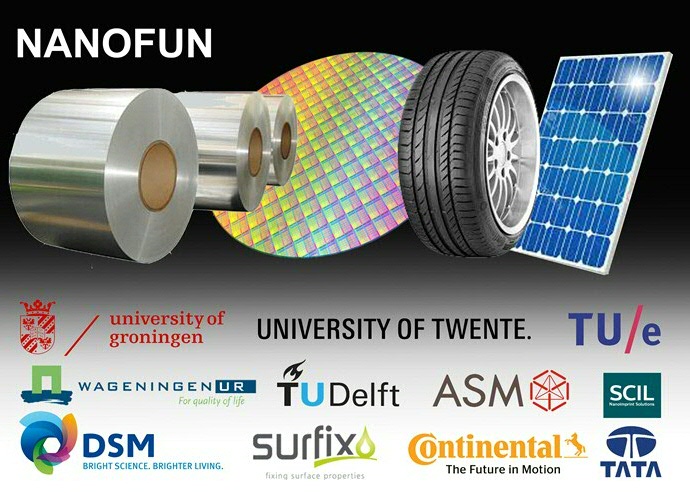Katja Loos leidt onderzoeksprogramma nano-materialen

RUG-hoogleraar polymeerchemie Katja Loos is hoofdaanvrager van onderzoeksproject NanoFun (Nanostructured self-assembled functional materials) waarin universiteiten en bedrijven samenwerken om bestaande materialen en technieken te verbeteren op nanoschaal. Via zelforganisatie kunnen zo verbeterde autobanden of staalsoorten ontstaan. Ook de productie van microchips is daarmee te verbeteren.
Het programma, dat mede wordt gecoördineerd door de M2i (stichting Materials Innovation Institute), is door NWO Chemische wetenschappen toegekend en krijgt 2,25 miljoen. Een miljoen hiervan is afkomstig van de zes industriële partners. De komende vijf jaar zullen verschillende promovendi en postdocs bijvoorbeeld werken aan de verbetering van de rolweerstand van autobanden door siliciumdeeltjes in het rubber te verwerken, aan het modificeren van het oppervlak van staal met polymeren en het verkleinen van de patronen op siliciumschijven voor de productie van chips. Naast de RUG zijn ook de vier TU’s bij het project betrokken. Ook zes bedrijven doen mee: het gaat om ASM, Philips SCIL, Continental, Tata Steel, Surfix en DSM.
Zelforganisatie
‘Wat de projecten verbindt is zelforganisatie’, legt Loos uit. Hierdoor is het mogelijk op nanoschaal iets toe te voegen aan bestaande producten of processen. De verschillende partners werken met verschillende materialen, maar er is ook overlap. De Wageningen Universiteit werkt bijvoorbeeld met polymeren om staal te coaten, terwijl Loos andere polymeren gebruikt om de productie van microchips te verbeteren. ‘De bedoeling is dat we van elkaar leren. Daartoe zijn er ook gezamenlijke workshops.’
In de groep van Katja Loos komen twee postdocs twee jaar lang aan dit onderzoek werken. Bij de partners komen nog eens 3 promovendi en 3 postdocs te werken. Het projectmanagement is in handen van M2i.
NanoFun
NanoFun is gefinancierd door het NWO Chemical Industrial Partnership Programme (CHIPP), dat is bedoeld voor publiek-private samenwerking tussen ten minste één bedrijf en ten minste twee kennisinstellingen. Projecten worden voor 50% gefinancierd door het bedrijfsleven en voor 50% door NWO.
Meer nieuws
-
17 februari 2026
De lange zoektocht naar nieuwe fysica
-
10 februari 2026
Waarom slechts een klein aantal planeten geschikt is voor leven
